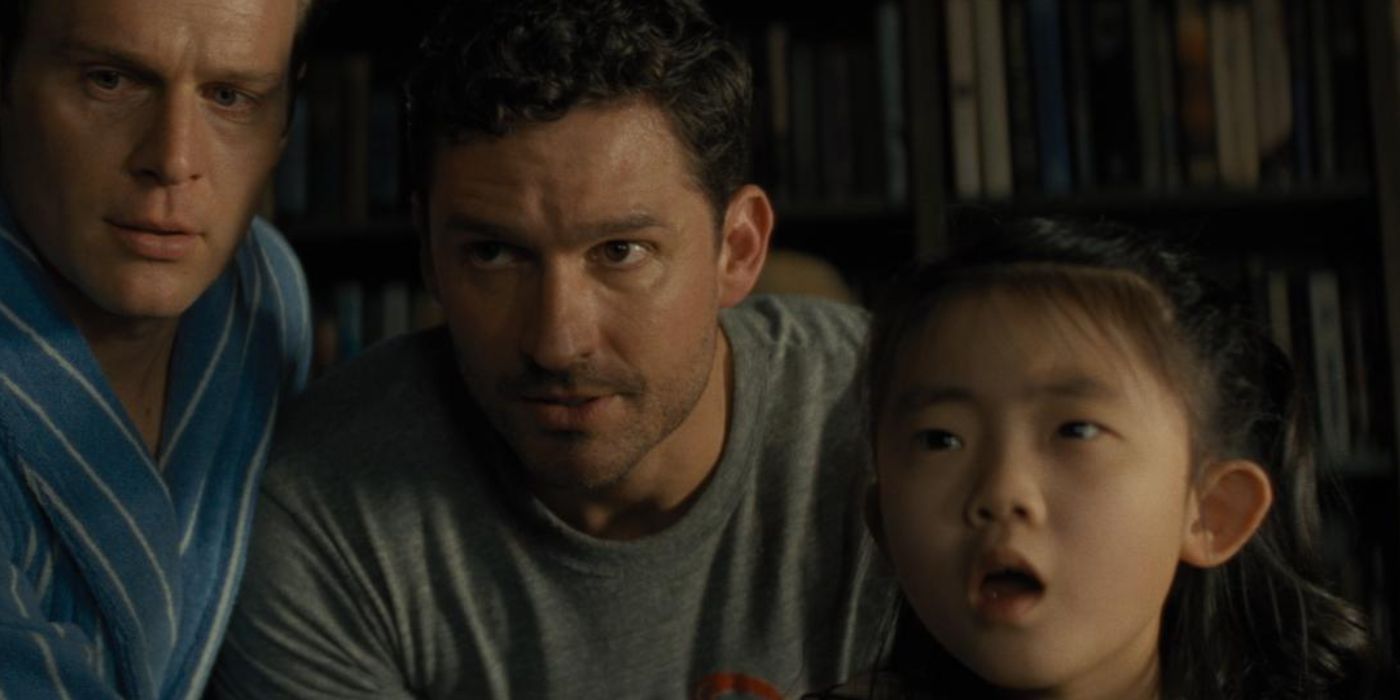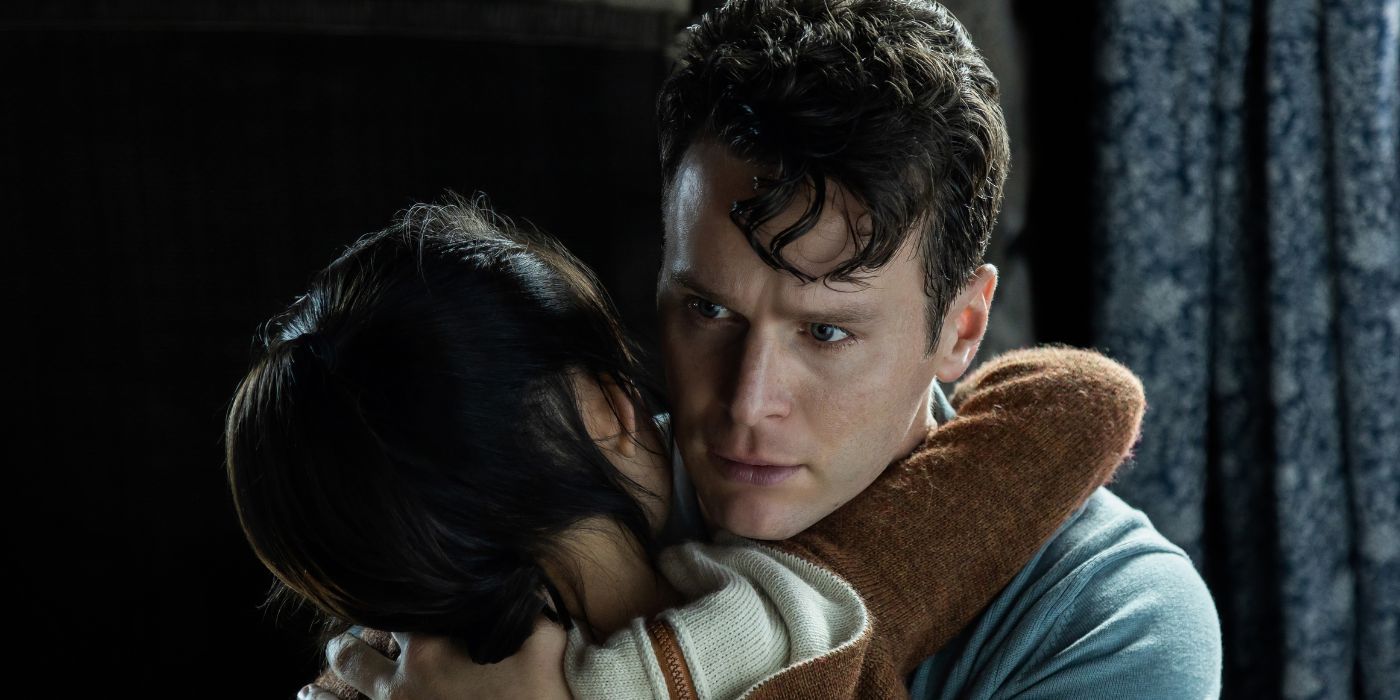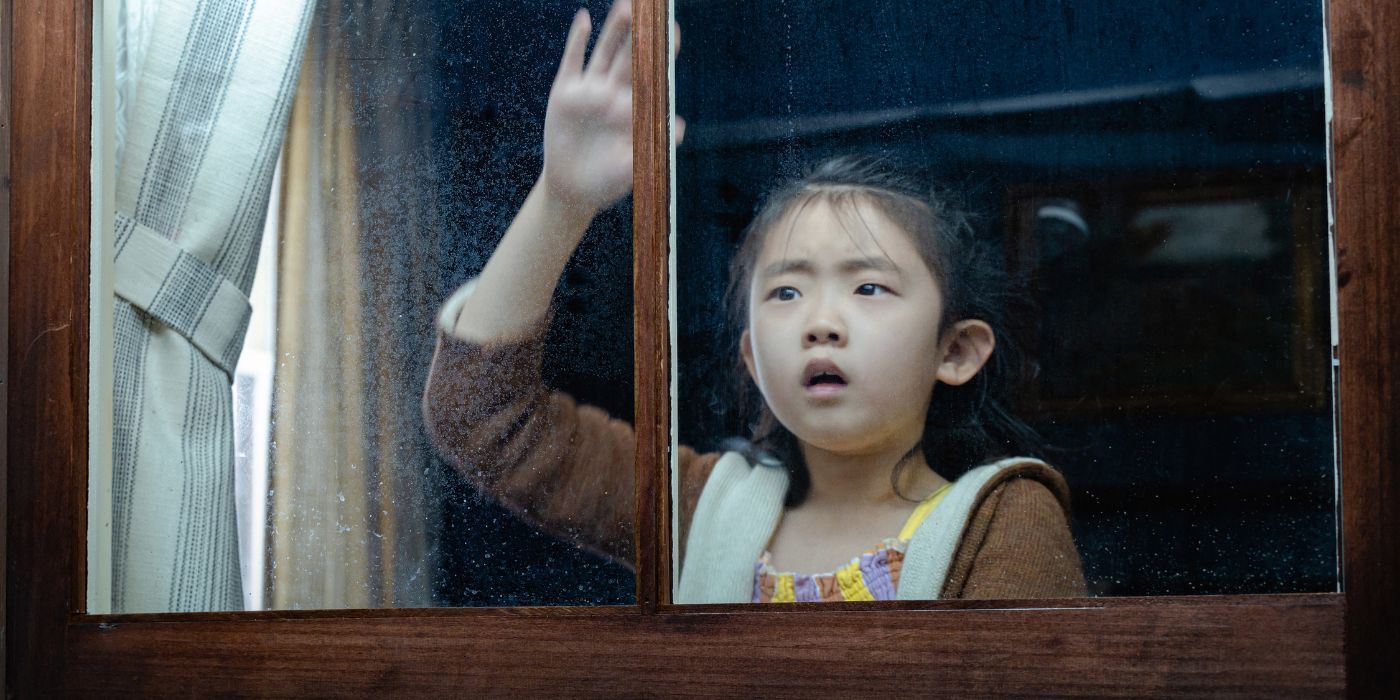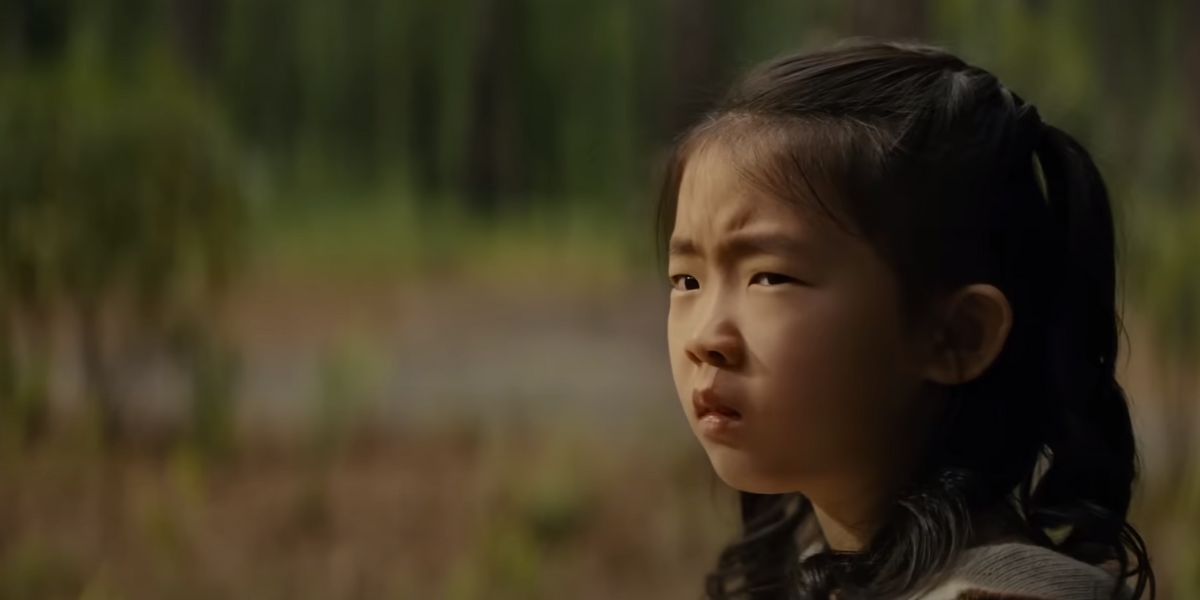The Big Picture
- Films based on books inevitably go through changes, but M. Night Shyamalan's "Knock at the Cabin" stays true to most of the novel's story plot.
- The biggest changes occur in the last third of the movie, altering the ending and the sacrifice made by Eric, which makes the film drastically different from its source material.
- Shyamalan's decision to keep Wen alive, unlike in the book, adds hope to the film and prevents it from becoming too dark and despairing.
Every film that's adapted from a book goes through changes. It's impossible not to. Even films that aim to be as faithful as possible to their source material have to cut settings, characters, dialogue, and entire scenes due to the limited scope of movies. There's no way to take a 300-page novel and film it word for word in a two-hour movie. It's the director's job to decide what needs to go in their version and how drama and tension can still be built to keep the original story alive. Many times as we know, however, a movie is drastically different from the book, leaving us wondering why they even bothered adapting it in the first place. Then there are the times when most of a novel's story plot is followed except for one crucial element which can change everything either for the better or worse. That's exactly what M. Night Shyamalan did with Knock at the Cabin, an adaptation of Paul Tremblay's popular novel The Cabin at the End of the World.
'Knock at the Cabin' Changes Several Parts of the Novel's Ending
The majority of the film plays out just like the novel. The characters are all there, the setting is the same, the motivation remains unchanged, scenes play out as they did on the page, and in many cases, even the dialogue remains unchanged. Sure, there are little changes throughout. For one, Dave Bautista's character, Leonard, the leader of a group who is trying to convince a family that one of them needs to sacrifice their lives to save the world, is just 24 years old in the novel. Bautista is three decades older than that. Changes like that are insignificant. Leonard's age is only mentioned once in the novel and has no importance to the part. Changing that to cast a high-caliber actor like Bautista, who was perfect in the role, is understandable.
It's the last third of the movie where the big changes occur, ones that drastically alter the film from its source material. In the film, Leonard kills himself after he is unable to convince the family to go through with the sacrifice. In the book, however, he is killed by a member of his own group. It's a significant change, but one that doesn't really alter the final goal. An even bigger change involves that sacrifice that comes at the end of the story. In the film, as the world starts to crumble to an end, Eric (Jonathan Groff) sacrifices himself, thus saving the world, and allowing his husband Andrew (Ben Aldridge) and their young, elementary school-aged daughter Wen (Kristen Cui) to live on with hope. It's a powerful decision that plays on the theme of how much we'll give to see the ones we love safe and happy. Eric is willing to give everything.
In the novel, the climax is completely different. Eric wants to sacrifice himself as they have their final proof that the world is ending around them, but Andrew talks him out of it. Neither one of them will die. Instead, they walk away together under the collapsing sky. They have experienced so much in life as one, from the rejection and anger directed at them for being a gay couple, to the fears of being adopted parents. They will face the end of the world together as well. That is a much different theme than the one in the book.
'Knock at the Cabin' Completely Changes Wen's Fate
As Eric and Andrew walk away in The Cabin at the End of the World, they do so without their daughter, Wen, walking beside them, for in this version of the story, she is dead. It's the biggest twist difference from page to screen. It's also one that was very much needed. In the book, Wen shockingly dies not even two-thirds of the way through. It's a gut punch of a swerve. Wen, in the book, just as in the film, is no minor character. The book's beginning and many of its following chapters are told through her eyes. She carries us through the events, looking at everything first with childlike innocence, then confused fear. The novel jumps to other point-of-view as well, but it's when we're with Wen that everything matters the most. She is the heart of the novel. And then she is gone.
In the novel, Andrew and Leonard fight over a gun. In the struggle, it accidentally goes off, and a bullet hits Wen, killing her instantly. Just like that, the most beloved protagonist is gone, and not just any protagonist, but an innocent child. Wen was no stereotypical child character written for sympathy's sake. She is smart and funny and seemingly almost as capable as her dads. To kill off a small girl who was such a great and pivotal character is a bold move. It's an even bolder move when it's not a third-act twist, but one that occurs in act two. It's one that immediately takes the wind out of the sails of the reader. What was a fun mystery thriller is now a depressing horror show with a dead kid.
After Wen's death, everything seems to stop mattering. Who cares that the world is coming to an end? Wen just got shot to death. Innocence is dead and the excitement of the book dies with it. That doesn't mean that the novel is horrible after that. It's still a good read and the ending of Eric and Andrew refusing to sacrifice themselves, then walking into the end together is a brave and touching one that may even work better than what Shyamalan did with the film. Still, it all felt meaningless without Wen, and the tension in the last act is taken away because the swelling balloon has already been popped. Tremblay killed the kid. What can he show us that's scarier than that?
M. Night Shyamalan Wouldn't Adapt "The Cabin at the End of the World" Unless Wen Lived
Shyamalan spoke about his decision to change Wen's fate from the novel to his film in an interview with Collider, saying:
"Well, it was very organic. The movie came to me as a producing entity where the writers and the directors who were on wanted to make a straight adaptation of the book, just moment for moment, straight adaptation. And that's how it came to me. And then I said, 'I love this premise so deeply. And I think you guys are onto something, I really do. I don't believe in this story when it went left. I can't get behind that. And I think my audience, I wouldn't want to have them experience that.' That's what I said. And I said, 'I totally support you and I wish you the best.' And then they went, and it didn't come together, that movie."
Shyamalan added:
"Then organically, the book came back to me and they said, 'We loved what you were saying about...' I said what I thought should happen and where the story should go. And then they said, 'We really believe in what you just said.' And I said, 'Huh.' Then I was thinking about it and I thought, 'I believe in this premise so much. I'm having that irrational connection to it.' And I could see myself working on it for a year and a half from there. And so I said, 'You know what? I'm actually going to do it myself.' So it was very beautiful in the way it came organically back."
Even the Darkest of Movies Needs Something Positive to Hold Onto
M. Night Shyamalan was right in his efforts to change Wen's fate. It was already controversial enough in the book. To do that in the film would not have worked. Movies have killed off kids many times. A gut-punch of an ending like that can be effective. Just look at The Mist. But to kill off a kid who is perhaps the main star (heck, it's Wen on the poster, not anyone else) would have destroyed the viewing experience for such a mainstream thriller. Imagine if Shyamalan had knocked off Haley Joel Osment's Cole in The Sixth Sense, or had one of the kids bite the dust in Signs. Audiences would have seen it as going too far and giving up from despair. Or to use a similar change, in Cujo, the little boy in Stephen King's novel dies. In a movie, that couldn't work. To have the child die after fighting so hard for him to live would have ruined the film. So the film changed that and let him live. Even horror needs some hope sometimes. The same goes for Knock at the Cabin.
That doesn't mean that Shyamalan chickened out, refusing to face a sad ending for a happy one. He simply took Wen's fate, which had little meaning outside of shock value in the novel, and put it on one of her dad's in an ultimate sacrifice. Someone still dies, but it's the death of someone older, a death of someone who has chosen to die. It's still heartbreaking, but we can handle it, and there's meaning behind it. In The Cabin at the End of the World, two men walk into the end of the world no longer as fathers. There's nothing to take from that except sadness. Shyamalan's Knock at the Cabin has pain and sadness, but it leaves us with hope. The best stories thrive on it.





